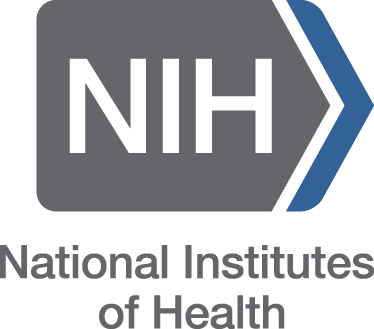NIH recognises innovative medical device designs from undergraduate biomedical engineers
The National Institutes of Health (NIH) and VentureWell have awarded prizes totalling $160,000 to 11 winning teams and five honourable mentions in the 13th annual Design by Biomedical Undergraduate Teams (DEBUT) Challenge.
The DEBUT Challenge, an annual competition that encourages undergraduate students to develop innovative solutions to healthcare problems, has once again showcased the ingenuity and potential of tomorrow’s biomedical engineers. This year’s contest attracted submissions from 85 teams, comprising 362 students from 24 U.S. states, demonstrating a wide array of novel medical technologies designed to address pressing healthcare issues.
Among the winning entries, several stood out for their potential to significantly impact patient care. The NIBIB “Steven H. Krosnick” First Prize of $20,000 was awarded to a team from Rice University for their UroFlo system. This innovative device is designed to improve post-operative assessment of haematuria by incorporating a spectral sensor to quantify blood in urine, automatically adjusting inflow rates, and quantifying waste bag outflow rates.
The NIBIB Second Prize of $15,000 went to a team from the University of California, Riverside, for their OCTAVE (Optical Coherence Tomography and Vibrometry Endoscope) system. This endoscopic probe offers high-resolution, real-time functional imaging of middle ear structures, potentially revolutionising hearing loss detection.
Northwestern University secured the NIBIB Third Prize of $10,000 for their Cesarean Delivery Glove, a cost-effective, reusable device designed to safely resolve impaction of the foetal head during caesarean section procedures.
Addressing diverse medical challenges
The competition’s scope extended beyond these top three prizes, with several other awards recognising innovations in various medical fields:
HIV/AIDS prevention and care
Loyola University Chicago received the NIH Office of AIDS Research Technologies for HIV/AIDS Prevention and Care Prize for their Infusion Pump Mobile Application. This app integrates with the Baxter Novum IQ infusion pump to ensure accurate and efficient drug infusion in intensive care settings, with potential applications for HIV treatment.
Healthcare in low-resource settings
The NIMHD Healthcare Technologies for Low-Resource Settings Prize was awarded to Cornell University for NanoLIST, a rapid, low-cost test kit utilising gold nanoparticles to detect elevated lead concentrations in saliva samples.
Cancer detection
Stanford University’s team won the NCI Technologies for Cancer Prevention, Diagnosis, or Treatment Prize for ColoTech, a novel screening tool for early detection of colorectal dysplastic and cancerous tissue.
Rehabilitative technologies
The University of Utah received the National Center for Medical Rehabilitation Research, NICHD Rehabilitative and Assistive Technologies Prize for their U-Build Bionic Knee, a low-cost, powered lower-extremity prosthesis designed to improve mobility for individuals with lower-extremity amputation.
Empowering nurses
Virginia Polytechnic Institute and State University was awarded the NINR Technologies to Empower Nurses in Community Settings Prize for their IV pole redesign, which aims to improve medication visualisation and mobility.
Kidney health
Clemson University’s team won the NIDDK Kidney Technology Development Prize for NephroGuard, a real-time diagnostic device for quick detection of acute kidney injury following cardiac surgery.
Entrepreneurship and design excellence
Two additional prizes were awarded by VentureWell:
- The Venture Prize went to Stevens Institute of Technology for Knee-sy Does It, a novel stretching device for patients with knee osteoarthritis or those recovering from knee surgery.
- The Design Excellence Prize was awarded to the University of Pittsburgh for Malleous, a surgical instrument combining suction and ribbon retraction tools.
Fostering innovation in biomedical engineering
Dr Bruce J. Tromberg, director of NIH’s National Institute of Biomedical Imaging and Bioengineering (NIBIB), praised the competition’s ability to drive innovation: “This year’s competition drew tremendous student innovation from all DEBUT Challenge entrants. We congratulate all the participants and their mentors on the impressive engineering designs and their passion for addressing compelling healthcare problems. DEBUT demonstrates the power of interdisciplinary teams coming together to deliver solutions to benefit patients.”
Dr Theresa Hayes Cruz of the Eunice Kennedy Shriver National Institute of Child Health and Human Development (NICHD) highlighted the potential impact of assistive technologies: “Assistive and rehabilitative technologies such as the low-cost, adaptable, bionic knee developed by this year’s winning team can improve the quality of life for people with physical disabilities.”
The future of healthcare
As these undergraduate teams continue to push the boundaries of biomedical engineering, their innovations offer a glimpse into the future of healthcare. From improving surgical procedures to enhancing diagnostic capabilities and developing assistive technologies, these young engineers are paving the way for more efficient, effective, and accessible medical care.
The awards will be presented to the winning teams on 25 October 2024, during the annual Biomedical Engineering Society conference in Baltimore, providing a platform for these promising innovators to showcase their work to the broader scientific community.


